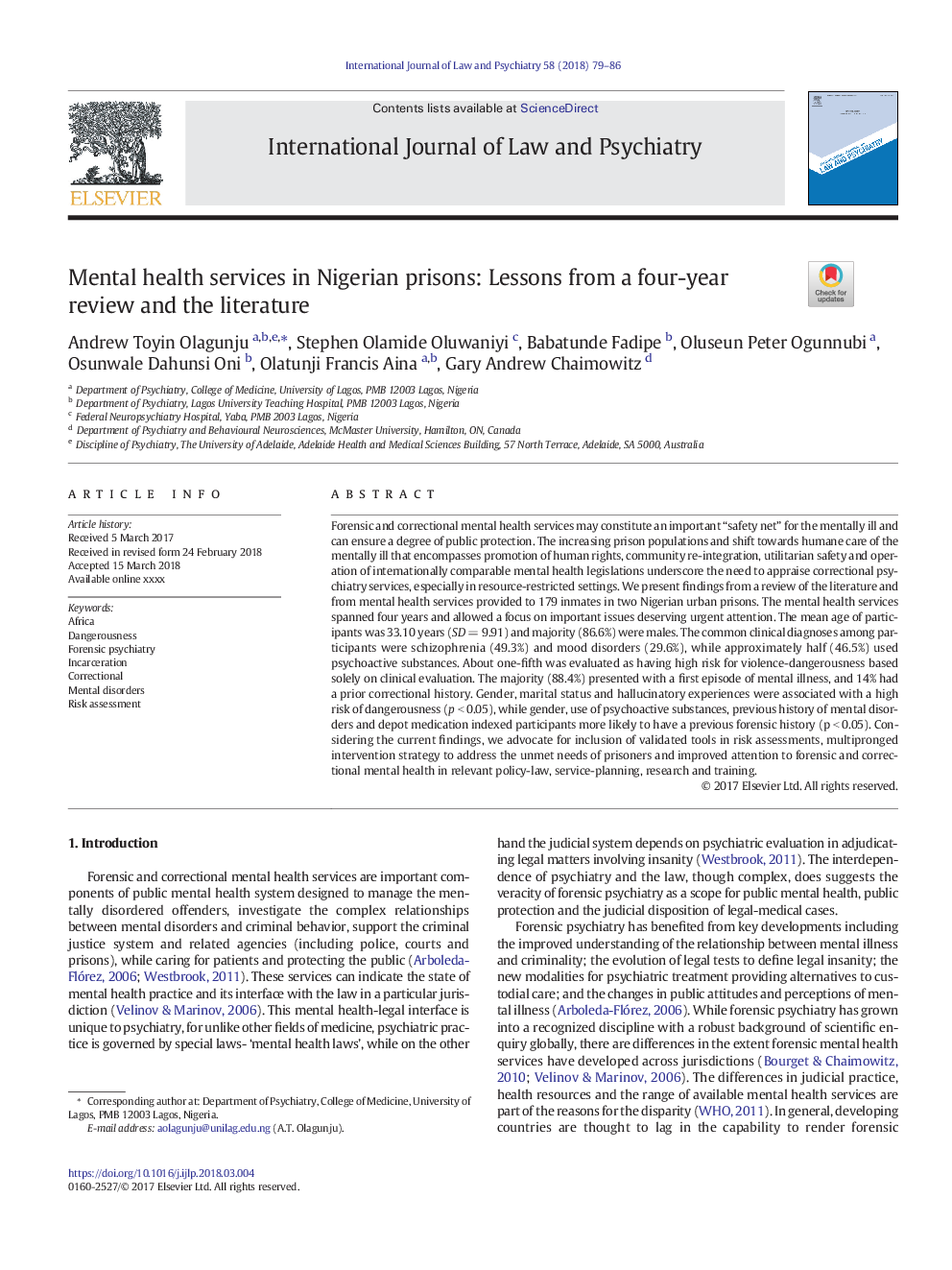ترجمه فارسی عنوان مقاله
خدمات بهداشت روان در زندان های نیجریه: درس های یک بررسی چهار ساله و ادبیات
عنوان انگلیسی
Mental health services in Nigerian prisons: Lessons from a four-year review and the literature
| کد مقاله | سال انتشار | تعداد صفحات مقاله انگلیسی |
|---|---|---|
| 127257 | 2018 | 8 صفحه PDF |
منبع

Publisher : Elsevier - Science Direct (الزویر - ساینس دایرکت)
Journal : International Journal of Law and Psychiatry, Volume 58, MayâJune 2018, Pages 79-86
ترجمه کلمات کلیدی
آفریقا، خطرناک، روانپزشکی قانونی، زندان، اصلاحی، اختلالات روانی، ارزیابی ریسک،
کلمات کلیدی انگلیسی
Africa; Dangerousness; Forensic psychiatry; Incarceration; Correctional; Mental disorders; Risk assessment;

